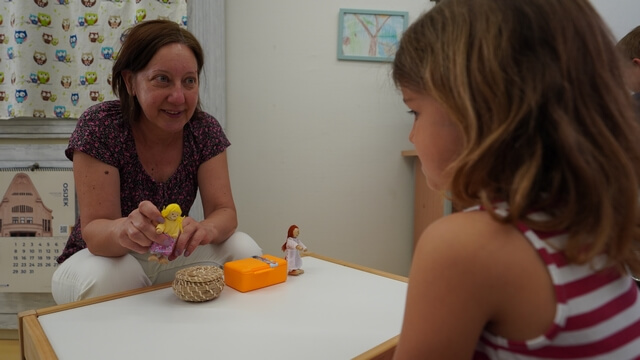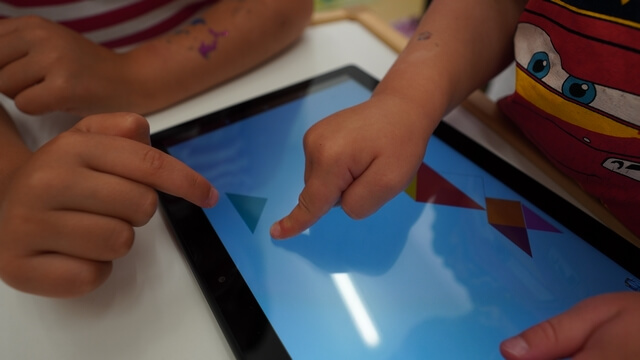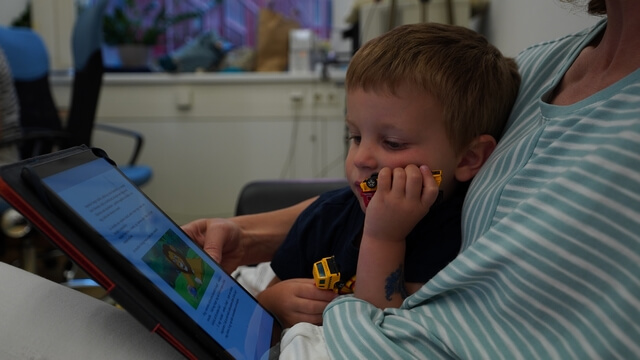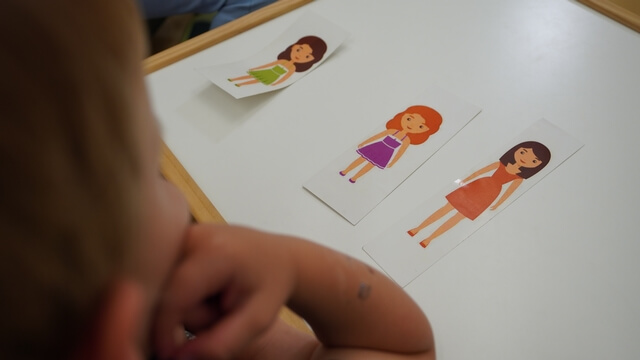In our research, we examine the impact of the digital world on children. Our primary focus is on psychological effects, exploring whether attention, emotional regulation, or the quality and quantity of social relationships are influenced by the use of digital devices.
In our research, we compare the mobile device usage habits and cognitive and social skills of children who spent their preschool years during and after the COVID-19 pandemic.
Read more
In this research, we measure and follow up on children’s mobile touchscreen device habits as well as cognitive and social skills.
Read more
Alphie is an educational app, a mobile agent which aims to achieve a positive change in children’s behavior and social-cognitive skills while also helping parents to control their child's digital activity.
Read more
As our previous research shows, more than half of preschoolers regularly use some type of digital device. How does this ratio compare among school-aged children, and exactly how much time do children spend with these devices?
Read more
We are interested in how the intensity of visualization in digital storybooks and the social context of storytelling affect children's creativity, fantasy and imagination.
Read more
The aim of the project was to investigate whether there is a difference in motor coordination between children developing typically or atypically (ASD, ADHD).
Read more
In this study we investigated whether children’s MTSD use correlates with the quality of parent-child interactions.
Read more
Developing digital versions of socio-cognitive tests that allows flexible testing at home and modernize psychological research.
Read more
We followed up children's use of mobile devices and the development of behavioral problems over time.
Read more
How much are we, adults are attached to our mobiles? Experimental study of the effects of separation from mobile phones
Read more
How do frequent mobile use influence children’s attentional, social or fine motor skills?
Read more
Questionnaire study with parents about the mobile/tablet use of their children, and how parents think about early use of digital devices
Read more
Liszkai-Peres, K., Budai, Z., Kocsis, A., Jurányi, Zs., Pogány, Á., Kampis, G., Miklósi, Á. and Konok, V. (2024). Association between the use of mobile touchscreen devices and the quality of parent-child interaction in preschoolers. Front. Child Adolesc. Psychiatry 3:1330243. https://doi.org/10.3389/frcha.2024.1330243
Konok, V., & Szőke, R. (2022). Longitudinal Associations of Children’s Hyperactivity/Inattention, Peer Relationship Problems and Mobile Device Use. Sustainability, 14(14), 8845. https://doi.org/10.3390/su14148845
Csizmadia, G., Liszkai-Peres, K., Ferdinandy, B., Miklósi, Á., & Konok, V. (2022). Human activity recognition of children with wearable devices using LightGBM machine learning. Scientific Reports, 12(1). https://doi.org/10.1038/s41598-022-09521-1
Konok, V., Liszkai-Peres, K., Bunford, N., Ferdinandy, B., Jurányi, Z., Ujfalussy, D. J., … Miklósi, Á. (2021). Mobile use induces local attentional precedence and is associated with limited socio-cognitive skills in preschoolers. Computers in Human Behavior, 120(December 2020). https://doi.org/10.1016/j.chb.2021.106758
Konok, V., Bunford, N., & Miklósi, Á. (2020). Associations between child mobile use and digital parenting style in Hungarian families. Journal of Children and Media, 14(1), 91–109. https://doi.org/10.1080/17482798.2019.1684332
Konok, V., Pogány, Á., & Miklósi, Á. (2017). Mobile attachment: Separation from the mobile phone induces physiological and behavioural stress and attentional bias to separation-related stimuli. Computers in Human Behavior, 71, 228–239. https://doi.org/10.1016/j.chb.2017.02.002
Konok, V., Gigler, D., Bereczky, B. M., & Miklósi, Á (2016). Humans’ attachment to their mobile phones and its relationship with interpersonal attachment style. Computers in Human Behavior, 1;61:537–47.
The Times, 2024
Frontiers, 2024
DailyMail, 2024
EurekAlert, 2024
EurekAlert, 2022
DailyMail, 2021
EurekAlert, 2021
NewsWise, 2021
BBC Newsbeat, 2017
DailyMail, 2017